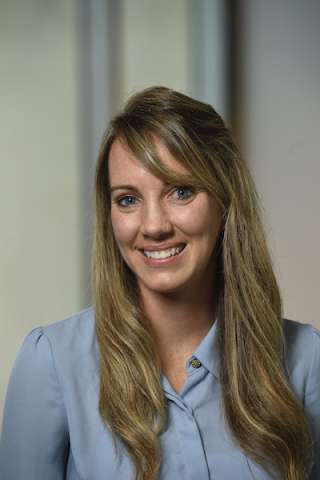
Health Disparities Q&A
July 16, 2020
Q&A with Bloomberg Fellow Amanda Brosnan
As an undergraduate at Texas A&M University, Amanda Brosnan was on a pre-med track with a strong interest in health equity. However, toward the end of her college years, she met a recruiter for Teach for America and decided to switch to education. Amanda was eventually placed at a middle school in rural Arkansas, where her students struggled with a host of issues, including extreme poverty and racism.
“I was very passionate about education for the children I was teaching,” Amanda remembers, “but I continued to notice these health disparities. These children didn’t have the same opportunities as their neighbors because they lived in a different zip code and had a different skin color.”
After teaching for two years, she decided to focus again on health and medicine, becoming a physician assistant. Working first in an urgent care setting close to San Antonio, she realized that many of her patients were dealing with the same issues that affected her students: for example, low access to healthy food and safe places to exercise. Now, as a physician assistant for Tarrant County Public Health, Amanda alternates between caring for individual patients and developing initiatives for larger populations, such as a youth advisory board that works with the county public health department, a Hepatitis C testing and treatment program, and a human trafficking screening program.
We spoke with Amanda about her passion for serving patients of the same age she used to teach and how being a Bloomberg Fellow can help her improve their health on a broader scale.
What drives you, and how did this bring you to your interest in public health?
I am driven by my desire to care for and serve others. This drive has led me to not only serve individual patients in providing health care, but to have a broader lens and question how I can best serve and care for the community. I soon realized that working in public health was the way to serve, care for, and ultimately be a part of improving the community, many lives at a time.
What public-health related work have you done that you’re most proud of?
I am most proud of my work with our sexual health clinic to improve access for our patients and community as well as work to expand our PrEP program (PrEP refers to pre-exposure prophylaxis, a method by which HIV-negative people can take a daily prescription pill that significantly reduces their chances of getting HIV if exposed) and partner with community organizations to provide education about safe sexual health.
What question or problem in your community keeps you up at night?
Our youth and the question of how we can better serve them keeps me up at night. I know they may face tremendous obstacles in their young lives, such as stigma, bullying, lack of mentorship, and mental health concerns, to name a few. I feel there is more our community can do to advocate for and also help them navigate these obstacles and ultimately overcome adversity as they grow into adulthood.
How is the Bloomberg Fellows Program helping you to tackle that problem? What impact do you hope you to make as a Bloomberg Fellow?
The Bloomberg Fellowship is helping me to develop skills to improve adolescent health in my community, including through providing a network of fellow public health advocates that can provide mentorship and partnership. The fellowship has been key in providing me motivation, inspiration, and education in not only adolescent health but also in the areas of violence, food systems, the environment, and addiction. The program is filled with example after example of fellows and faculty coming together to develop programs and policies that are directly improving communities. Through the fellowship, I hope to impact my community by uniting youth
Connect With Us
Receive all the latest news from the Initiative by signing up for the American Health Dispatch newsletter, subscribing to the American Health Podcast, and subscribing to our YouTube channel.
Contact Us